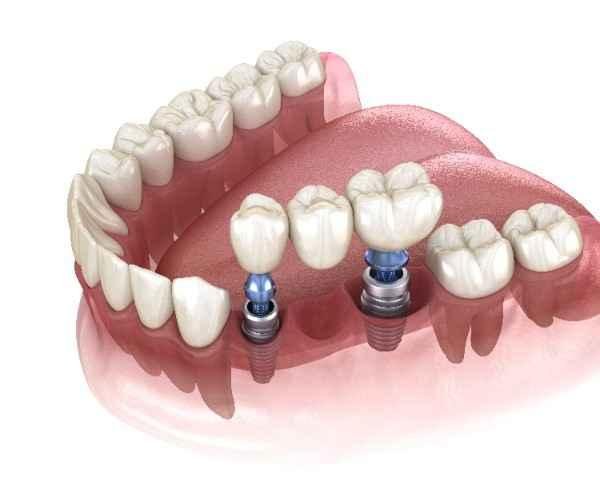We all know how important it is to have a solid long-term dental plan—routine check-ups, good oral hygiene, maybe even the dream of a straighter smile or a brand-new dental implant someday. But what happens when life throws a spanner in the works? That sudden cracked tooth while chewing dinner or the excruciating pain at 2am? Emergency dental care is the unsung hero that quietly supports our long-term dental goals, stepping in when things don’t go according to plan.
Why Emergency Dental Care Deserves a Place in Your Plan
Think of your teeth like you’d think of a home or car—both of which need regular maintenance and urgent repairs from time to time. You wouldn’t let a leaking roof or engine light slide for weeks, would you? Emergency dental care functions the same way. A chipped tooth left untreated can become an infected root canal. A swollen gum ignored can compromise a carefully placed crown.
It’s not just about immediate pain relief—it’s about keeping long-term work, like orthodontics or a dental implant, in tip-top shape.
Emergencies Can Derail Long-Term Plans
Even the most thoughtful dental plans can go awry if emergencies aren’t handled quickly. Imagine you're mid-way through your Invisalign journey or recently had a dental implant in Ipswich placed. An infection, broken crown or sudden trauma could undo months of progress.
Here’s where having quick access to an emergency dentist in Ipswich matters. They’ll not only treat the immediate issue but also coordinate with your primary dentist to keep your treatment plan on track.
Did You Know?
According to a 2023 study in the British Dental Journal, nearly 36% of adult dental emergencies involve patients with ongoing dental treatments. It shows just how frequently short-term crises affect long-term outcomes.
What Counts as a Dental Emergency Anyway?
We’re not talking about a bit of plaque or a missed cleaning here. Dental emergencies include:
- Sudden, severe toothaches
- Knocked-out or cracked teeth
- Swelling in the gums, face or jaw
- Bleeding that doesn’t stop
- Trauma from accidents or sports injuries
- Infections, abscesses or unexplained bad taste
If it stops you sleeping, eating or focusing, it’s likely an emergency. And if you’ve recently had a dental implant Ipswich, any pain, swelling, or bleeding should be checked quickly to avoid complications.
Video Link: 🦷 Restore Your Smile with Advanced Dental Implants!
Emergency Care Keeps Small Problems from Getting Big
Spotting and treating a dental emergency early can mean the difference between a simple fix and a long, expensive recovery. For instance, treating a cracked tooth within 24 hours can prevent the need for a full crown or implant down the line.
And let's be honest—pain is your body's polite way of saying, “Oi, something’s not right!” Ignoring it doesn't save money or time; it usually just makes things worse.
Regular patients of an emergency dentist in Ipswich often report that early intervention saved their gums, teeth, and sometimes even their sanity.
Integrating Emergency Care Into Your Long-Term Dental Plan
Keep a Reliable Emergency Contact Handy
Just like you’d know your GP’s number off by heart, it’s worth knowing how to reach a trusted emergency dentist. Most offer same-day or out-of-hours appointments, especially for existing patients.
If you’ve got a dental implant Ipswich, your practice will likely have post-op emergency protocols—follow them! Inflammation or dislodgement should be treated within hours, not days.
Budgeting for Emergencies
Let’s face it—dental emergencies are often unplanned, but that doesn’t mean you can’t prepare. Some private plans offer emergency dental cover, and NHS care handles specific urgent cases. Still, it’s wise to set aside a small emergency dental fund, just in case.
Think of it like roadside assistance for your mouth.
Make Emergency Awareness Part of Regular Check-Ups
During routine appointments, ask your dentist:
- What should I look out for between visits?
- What’s normal discomfort vs. emergency pain?
- If I get a dental implant Ipswich, what’s the emergency follow-up?
Good dentists welcome these questions. A solid dental plan includes the "what-ifs" as much as the "what's next."
The Role of Aftercare and Follow-Up
Emergency treatment doesn’t end with the initial visit. Often, there’s a chain of follow-up care required: monitoring healing, adjusting restorations, or re-evaluating ongoing treatments.
For example, a patient who sees an emergency dentist in Ipswich for a knocked-out tooth might later need a bridge, crown, or even a dental implant in Ipswich to replace it.
So, the emergency care isn’t just a detour—it’s often the first step in a new, adjusted plan.
Common Scenarios That Blend Emergency and Long-Term Dental Work
The Cracked Tooth on a Friday Night
You’re enjoying a meal and crack—a molar gives way. An emergency dentist patches it temporarily, advises on next steps, and books you in for a crown. That quick action means no nerve exposure, no infection—and no root canal.
The Post-Implant Panic
Three days after your dental implant in Ipswich, you notice throbbing pain and swelling. You call your dentist’s emergency line. They assess for infection, adjust antibiotics, and prevent full implant failure. Long-term treatment saved by short-term care.
The Rugby Accident
Your teenager comes home with two front teeth missing after a match. An emergency dentist acts fast, re-implants one, and stabilises the area. Long-term options like a dental implant in Ipswich or bridge are scheduled after healing.
Don't Wait Until It’s Too Late
We get it—life’s busy. Between kids, work, and the weekly shop, it’s easy to push dental discomfort to the back burner. But emergencies don’t follow your diary. Addressing them immediately not only saves you pain and stress—it protects your dental future.
Making room in your long-term dental strategy for those unpredictable moments means you're not caught off guard. Instead, you're calm, ready, and protected.
A trusted emergency dentist in Ipswich isn’t just there for crises—they're your partner in a lifelong dental journey.

Conclusion
At EDl, we believe that great dental care means planning ahead and being ready for the unexpected. Emergency treatment is not a separate path—it’s a vital part of every long-term plan. Whether you're managing ongoing oral health or looking after new dental work, knowing where to turn in a crisis makes all the difference. After all, a healthy smile isn’t just built on perfect days—it’s built on how well you handle the rough ones too.

